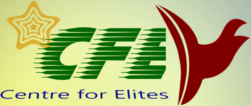The concept of curriculum refers to a structured framework that guides educational experiences, going beyond a mere list of subjects to reflect an educational institution’s values, beliefs, and goals. It serves as a roadmap for educators to navigate the teaching and learning process effectively.
Schools exist in society for the main purpose of transmitting existing knowledge, culture and traditions of society to their learners. This is necessary in order to ensure the continuity of that society. From time to time, however, members of society are concerned with what the schools are for and what must be taught in the school. Thus, members of the society do come together to take decisions on what schools teach to the learners. The totality of the learning experience in schools is what is called “curriculum”. However, because of varying perspectives from which different people are bound to look at the same things, the term “curriculum” has been defined in many different ways by different experts. In this unit, you will be exposed to the basic concepts of curriculum and its nature and importance in schools. Go ahead and enjoy your study.

Meanings of Curriculum
The word “curriculum” comes from the Latin word “currere”, which means:
“to run or to run a course”. That is, a course of study, which contains a body of subject matter approved for teaching by society in schools. However, as said earlier, different experts view “curriculum” from perspectives other than the “course of study” definitions. Here are some of them;
Curriculum is a “structured series of learning outcomes”. It, therefore, tries to see curriculum as an “input” which results in a certain “output”. Another definition says: Curriculum is “an organized set of formal educational or training intentions”.
The emphasis of this view is clearly seen, from the “input” perspectives. In other words, what the school teaches or intends to teach is organized according to some set rules. For example, there is a principle which says that what is known should be taught first before proceeding to what is not known. Another example is the principle that what is simple should be taught first before teaching complex material. A pupil must learn first by counting concrete objects such as bottle tops- adding and subtracting them, before extrapolating to abstractions and more complex mathematical problems.
- Curriculum is a “deliberate, systematic and planned attempt undertaken by the school to modify or change the behaviours of the citizens of a particular society”.
- This view appears to be more elaborate in explaining the term “curriculum” than the others. Although the input-output paradigm is subsumed in this definition it is clear that what the school teaches must be deliberately planned and arranged in a particular way to bring about the desired outcome of changing the citizen’s behaviour.
Analysis and Summary of the concept of curriculum development
From the foregoing, it is clear that there is a programme which schools must run in order to properly educate the citizens. It is therefore a plan, a statement of purpose with a specification of content and methods, in-built with the capacity for evaluation to know whether the purpose has been achieved or not. This programme which the schools must follow or use has been carefully divided into three namely:
- Programme of studies – the subjects which must be taught in schools such as History, Geography, Economics and Physics.
- Programme of activities – planned and organised out-of-classroom teaching activities which help the learners to neither grow nor mature but are not as formal as in a classroom teaching setting. Examples include getting students to join various clubs and societies in the schools (e.g. Sports, Historical Clubs, Debating Clubs, Dramatic Society etc). Through these, students learn through the process of socialisation, because it is less formally structured.
Programme of Guidance – a programme of care for the well-being of the learner. In this programme, professionally – trained helpers are employed to assist the learners in achieving the self-understanding and self-direction necessary for adjustment to school, home and the larger environment. In specific terms, the counsellors assist learners in three major areas: educational, vocational and persona-social. In educational areas, counsellors help learners to make decisions on the right choice of vocational area, counsellors assist learners to make decisions on the right choice of vocation or careers.
In the persona-social area, counsellors assist learners in handling emotional and psychological problems which may affect their behaviours adversely or prevent them from learning in school. In summary, the term “curriculum” may be said to be a total package of what schools do to make learners become what society expects them to become, namely good citizens, who are not only able to understand or learn certain school subjects but fully integrated individuals that are able to fit into society and contribute their own quota as well, to the progress of that society.
Please visit and subscribe to our YouTube Channel:Decroly Education Centre (youtube.com)orCentre for Elites – YouTube
En savoir plus sur Centre for Elites
Subscribe to get the latest posts sent to your email.
